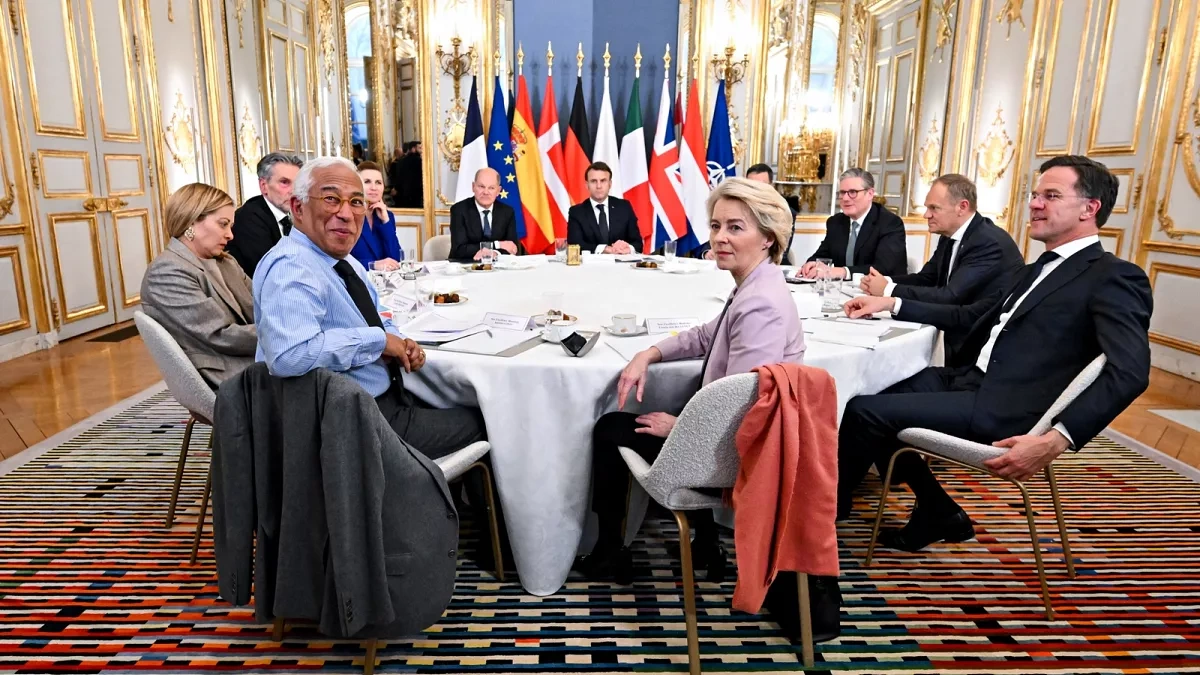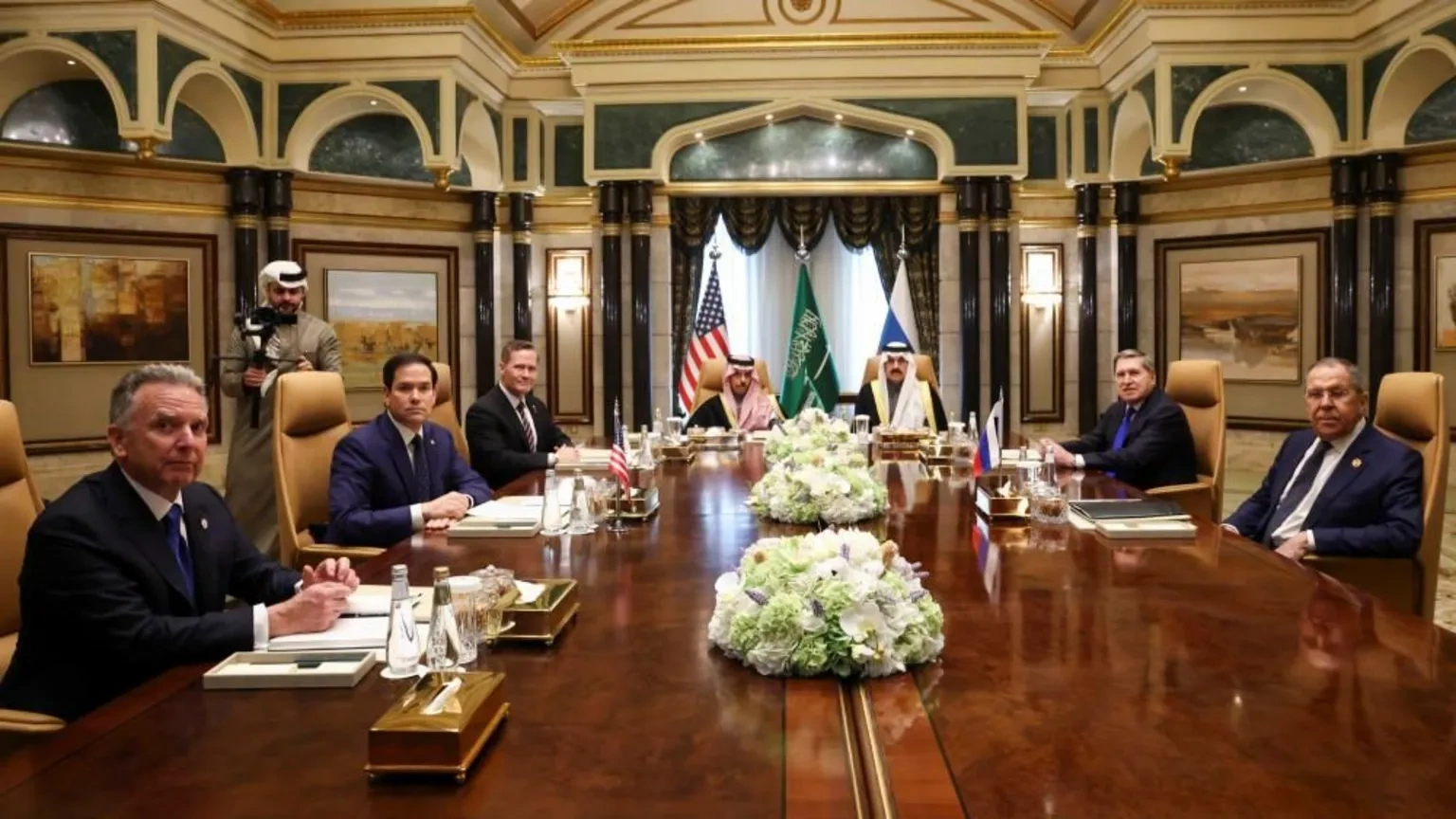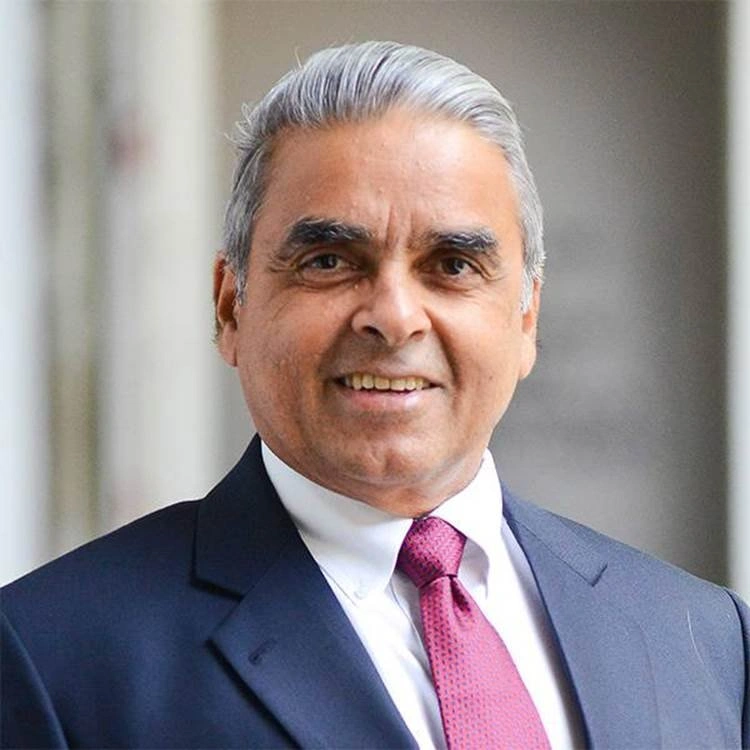Time for Europe to Do the Unthinkable
 On February 17, European leaders held an emergency meeting in Paris to discuss how to respond to the negotiations between the U.S. and Russian delegations in Saudi Arabia.
On February 17, European leaders held an emergency meeting in Paris to discuss how to respond to the negotiations between the U.S. and Russian delegations in Saudi Arabia.
Desperate times call for desperate measures. And as my geopolitical gurus taught me, one must always think the unthinkable, as Europe must do now.
It’s too early to tell who the real winners and losers from the second Trump administration will be. Things could change. Yet, there’s no doubt that Europe’s geopolitical standing has diminished considerably. U.S. President Donald Trump’s decision to not even consult with or forewarn European leaders before speaking to Russian President Vladimir Putin shows how irrelevant Europe has become, even when its geopolitical interests are at stake. The only way to restore Europe’s geopolitical standing is to consider three unthinkable options.
 On February 18, the foreign ministers of the U.S. and Russia held a meeting in Saudi Arabia.
On February 18, the foreign ministers of the U.S. and Russia held a meeting in Saudi Arabia.
First, Europe should announce its willingness to quit NATO. A Europe that is forced to spend 5 percent on defense is a Europe that doesn’t need the United States. Five percent of the combined EU/U.K. GDP in 2024 amounts to $1.1 trillion, comparable to U.S. defense spending of $824 billion in 2024 (In 2024, the EU and U.K. combined spent around $410 billion on defense.). Eventually, Europe need not quit. But only a credible threat to leave would wake up Trump (and Vice President J.D. Vance and Defense Secretary Pete Hegseth) and force him to treat Europe with respect. By contrast, the insistence of the Europeans on staying in NATO after Trump’s provocative actions gives the impression to the world that they are licking the boots that are kicking them in the face.
What shocks many in the world is that Europeans didn’t anticipate the quagmire they’re in. One of the first rules of geopolitics is that we must always plan against worst-case scenarios. After the Ukraine war broke out, all European strategic thinking was based on the best-case scenario of the United States being a totally reliable ally, despite having experienced Trump’s first term and his threats to pull out of the world’s biggest military alliance. For a continent that has produced strategic minds like Metternich, Talleyrand, and Kissinger, there has been almost infantile strategic thinking on Ukraine and its long-term consequences.
If Metternich or Talleyrand (or Charles de Gaulle) were alive today, they would recommend unthinkable option 2: Work out a new grand strategic bargain with Russia, with each side accommodating the other’s core interests. Many influential European strategic minds would balk at these suggestions, because they are convinced that Russia represents a real security threat to the EU countries. Really? Which is Russia’s most fundamental strategic rival, the EU or China? With whom does it have the longest border? And with whom has its relative power changed so much? The Russians are geopolitical realists of the highest order. They know that neither Napoleon’s troops nor Hitler’s tanks are going to advance to Moscow again. The Europeans don’t see the obvious contradiction between exulting in Russia’s inability to defeat Ukraine (a country of 38 million people and a GDP of about $189 billion in 2024) and then declaring that Russia is the real threat to Europe (which has 744 million people and a GDP of $27 trillion in 2024). The Russians would likely be happy to work out a fair compromise with the EU, respecting current borders between Russia and the EU and a realistic compromise on Ukraine that doesn’t threaten either side’s core interests.
In the long run, after some strategic trust has redeveloped between Russia and a new strategically autonomous Europe, Ukraine could gradually serve as a bridge between the EU and Russia rather than as a bone of contention. Brussels should consider itself fortunate that, in relative terms, Russia is a declining power, not a rising power. If the Association of Southeast Asian Nations, a relatively weaker regional organization, can work out a long-term relationship of trust with a rising power like China, surely the EU can do better with Russia.
And this leads to unthinkable option 3: Work out a new strategic compact with China. Again, in the realm of the ABCs of foreign policy, there’s an important reason why geopolitics is a combination of two words: geography and politics. The geography of the United States, which faces China across the Pacific Ocean, combined with Washington’s urge for primacy, explains the hostile relationship between the United States and China. What geopolitical pressures have caused the downturn in EU-China relations? The Europeans foolishly believed that a slavish loyalty to American geopolitical priorities would lead to rich geopolitical dividends for them. Instead, they have been kicked in the face.
The remarkable thing here is that China can help the EU deal with its real long-term geopolitical nightmare: the demographic explosion in Africa. In 1950, Europe’s population was double that of Africa. Today, Africa’s population is twice as large as Europe’s. By 2100, it will be 6 times larger. Unless Africa develops its economies, there will be a surge of African migrants into Europe. If Europeans believe that Europe will never produce leaders like Trump, they are clearly being delusional. Elon Musk isn’t the only billionaire supporting far-right parties in Europe.
To preserve a Europe run by centrist parties, Europeans should welcome any foreign investment in Africa that creates jobs and keeps Africans at home. Instead, the Europeans are shooting themselves in the foot by criticizing and opposing China’s investment in Africa. Just this one act demonstrates how naive long-term European strategic thinking has become. Brussels is sacrificing its own strategic interests to serve American interests in the hope that geopolitical subservience would lead to rewards.
Clearly, it hasn’t. Two thousand years of geopolitics has taught us a simple and obvious lesson: All great powers will put their own interests first and, if necessary, sacrifice the interests of their allies. Trump is behaving like a rational geopolitical actor in putting what he perceives to be his country’s interests first. Europe shouldn’t just criticize Trump—instead, it should emulate him. It should carry out the currently unthinkable option: Declare that henceforth it will be a strategically autonomous actor on the world stage that will put its own interests first. Trump may finally show some respect for Europe if it does that.
Editor: Li Jingyi





Anonymous
Mahbubani is right about the three options. The tragic reality is that there is currently no truly substantive European leader like De Gaulle—no one dares to act instead of just talking. Even now, with the United States clearly withdrawing its support, European leaders are merely huddling in a “summit” without any clear direction or decisive action.
Meanwhile, the deindustrialization of their economies continues. I believe the first step to stopping the economic decline is to activate the undamaged Nord Stream pipeline to secure cheap gas for their industries and households. Next, they should quickly negotiate with Canada to supply cheaper LNG without tariffs and open trade with China by reducing EV tariffs.
Once these immediate actions are taken, they can then strengthen their defense and position themselves as an independent pole among the three superpowers. Only then will they have the gravitas to engage in meaningful discussions. If they fail to resolve the critical issue of securing cheap energy, their options will remain severely limited. Yes, this may require temporarily placating Russia, but the U.S. poses an even greater threat—while it speaks sweetly of democracy, in reality, it has economically, politically, and militarily bankrupted Europe.
Anonymous
Europeans better read the Chinese novel “The war-mance of the three kingdoms” to understand how to survive a multi-lateral world.
Anonymous
Europe lacks the leadership to make pre-emptive moves. Both the European Commission and the voluntary coalition of heads of states of the EU27 members only have mechanisms and mandates from their people to be able to react in events that others impose on them and try to minimize the fallout. Everyone hopes for a crisis that will create bring to power trully nationalistic -and hopefully EU nationalistic- leaders but i think the USA will not let this happen. The future really looks dark right now in Europe; hopefully there’s some light soon from people who are capable and havent made themselves visible still
Anonymous
Time for Europe to grow a spine!
Anonymous
European Union will break apart within Trump’s term, as long as the three stooges are around. Namely, Micron, Sholtz and Vonder Layan.
Anonymous
With all due respect to Kishore Mabubani, he doesn’t appreciate that in Europe what we are dealing with at the political leadership level, are apparatchiks. They don’t have the intellectual capacity nor the political courage or acumen to make hard choices and to convince the public to follow them on that journey. This is evident by the dearth of ideas in how to address their present dilemma. The only leaders who are actually focused on delivering for their constituents are Victor Orban, and Robert Fico. The rest are more than ready to self imolate themselves on the banner of an imagined collective west who supposed superiority are based on a massive lie that they invented and created everything of value in our world and that the rest of the world is just a beneficiary of their benevolence. Well there’s an expression that I always remember, All Lies Filter Down to the Truth. And we are seeing the truth come out in so many ways that now the rest of the world is now starting to take its proper place in our human journey and the advancement of humanity.Don’t expect much of these people. They are only there for a nice pay check provided to them by their pay masters who are actually making the decisions.